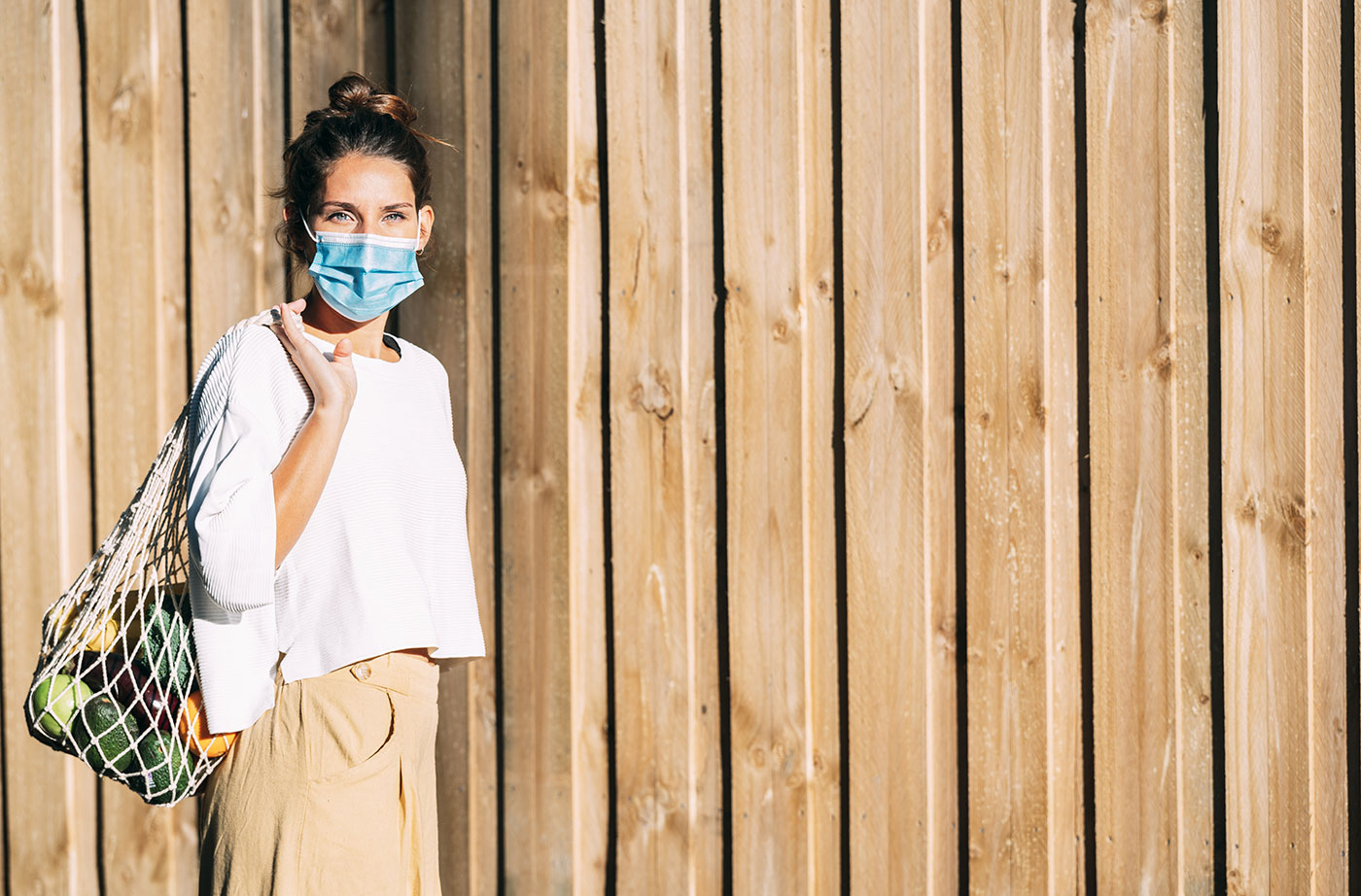Small victories need to be celebrated, particularly when you’re up against the monstrous plastic industry and fossil fuel companies. Store managers can now allow customers to bring in reusable shopping bags, according to the COVID19 Prevention Checklist Industry Guidance provided by the Maine Department for Economic and Community Development. This is a small but meaningful improvement to the previous language that prevented customers from bringing reusable bags into stores at all. Unfortunately, Maine’s ban on single-use plastic shopping bags is still delayed until January 15, 2021.
One of many adverse impacts of the pandemic response has been a resurgence of single-use plastic and paper shopping bags. By 2019, Maine had put in place 25 municipal ordinances that discouraged the use of single-use shopping bags in some way or another, and the statewide plastic bag ban was due to take effect on Earth Day of this year. But as of late March, the plastic industry, seeking to boost its profits, had falsely but successfully villainized reusable bags as being carriers of the virus. This is a desperate attempt to breathe new life into the old notion that disposables are more sanitary than reusables. That is junk science. The real science shows the opposite is true.
Real, peer-reviewed, science shows that plastic harbors the virus longer than paper or cloth, and there is zero scientific evidence to back up the claim that single-use bags are any safer than reusable bags. Here is a Health Expert Statement Addressing Safety of Reusables and Covid-19, signed by more than 125 officials from 18 countries, defending reusables in general, and specifically stating that it is OK for customers to bag things themselves. This accompanying article lays it all out as well, stating that, “It’s official. Reusables are safe during COVID-19.” And ICYMI, here is where NRCM called out the fossil fuel and plastic industries for misleading lawmakers into thinking that increased use of plastic was the key to protecting human health, which could not be further from the truth.

Here are some of the highlights on why reusable bags are rightfully making a comeback:
- Surface transmission of the virus, while technically possible under the right circumstances, has not been documented. Aerosolized droplets are the only documented method of COVID-19 transmission to date. Given this information, customers should be able to bag their own groceries.¹
- The COVID-19 virus lasts longer on plastic than paper or cloth, so even if surface transmission was of concern, there is nothing to suggest that single-use plastic is any safer than a reusable bag.²
- It is well documented that single-use plastics, and plastic production in general, is harming our health³ and climate.4
- Plastic bag bans are an effective way to reduce or eliminate plastic bag litter, which is a pervasive5, deadly6, and expensive7 form of plastic pollution.
Based on the facts, Vermont, which passed a very similar statewide prohibition on plastic bags the same day Maine did in 2019, has proceeded as planned and banned single-use plastic shopping bags as of July 1. Similarly, the states of Oregon and Connecticut made no changes to their bag laws and are allowing for, or even encouraging, the use of reusable bags. The Natural Resources Council of Maine is working to set the record straight and let our lawmakers, store managers, and friends know that reusable bags are indeed safe to use, and far less wasteful than their single-use counterparts.
That’s where you come in. Next time you go shopping, please take note as to whether or not the store has decided to allow for reusable bags. If yes, thank them! If no, then ask to speak with the manager (also be sure to say no to single-use bags and opt to bag your groceries in your car). Explain that reusable bags are safe to use, particularly if you bag your groceries yourself, and respectfully request that they change their store policy based on the facts. Pandemic or not, waste reduction and reuse are, and always will be, key ways to conserve our natural resources and protect our health and the environment.
—Sarah Nichols, NRCM Sustainable Maine Program Director
[1] https://www.cdc.gov/coronavirus/2019-ncov/prevent-getting-sick/cleaning-disinfection.html
[2] https://www.nejm.org/doi/full/10.1056/NEJMc2004973
[3] https://www.ciel.org/plasticandhealth/
[4] https://www.ciel.org/plasticandclimate/
[5] https://oceanconservancy.org/trash-free-seas/international-coastal-cleanup/annual-data-release/
[7] https://earth911.com/business-policy/policy-legislation/litter-costs-the-u-s-11-5b-annually/










Can you also include on your site that in order to use your own bag you must pack your own groceries. People here in Maine, I would say 90% are too lazy or refuse to pack their own bags or take them without a bag. This is a FACT, I work in a grocery store and have been asking people who do not want to use plastic to take the groceries and put them in their own your vehicle or bag them in the parking lot. They would rather use plastic, this is sometimes for 1-3 items.